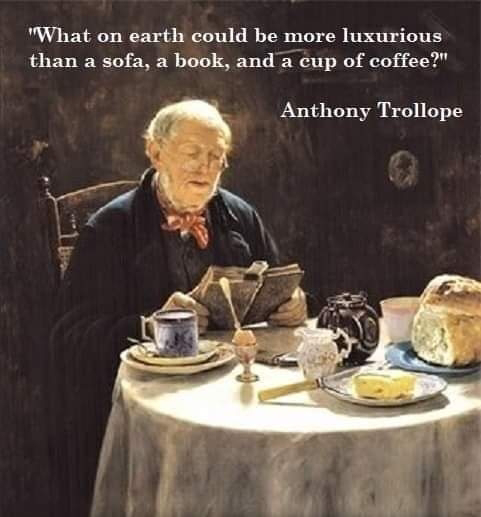In the serene painting, an elderly person is immersed in a book, accompanied by a modest feast of bread, coffee, and the comfort of a sofa.
In the serene painting, an elderly person is immersed in a book, accompanied by a modest feast of bread, coffee, and the comfort of a sofa. This visual eloquently complements Anthony Trollope's quote, summoning a reflection on the nature of luxury.
Luxury is often equated with opulence and material excess, but Trollope's words invite us to recalibrate our understanding of it. He implies that true luxury lies not in the grand and extravagant, but in the simple pleasures that nourish the soul and provide contentment. The depicted individual is not in a grand setting, yet the arrangement around them suggests a self-contained world, rich with the pleasures of solitude and reflection.
In a world that relentlessly pursues more, Trollope's quote and the accompanying image serve as a gentle protest. They advocate for an appreciation of moments that require little yet offer much. The sofa, book, and coffee do not represent mere physical comforts; they symbolize a state of being where the mind is at ease, the body is rested, and the spirit is engaged.
The scene also touches on the universal nature of such luxuries. These simple joys are accessible to many, transcending socio-economic divides. A book opens worlds of imagination and knowledge, a sofa provides rest, and a cup of coffee stimulates the senses and the mind—all elemental experiences that are, in their own way, luxuriant.
In essence, Trollope challenges the reader to find richness in life's basic elements. As the person in the painting is lost in their book, surrounded by humble comforts, we're reminded that perhaps the greatest luxury is the capacity to find profound satisfaction in the ordinary, to feel richness in simplicity, and to acknowledge that the most fulfilling moments are often those that money cannot buy.


